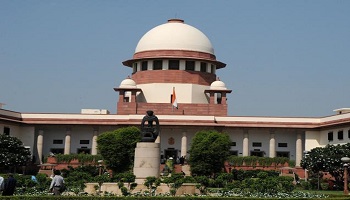By I C Naik
In part 1 we saw that formation of housing societies exclusively for members having common a belief or faith, or a persuasion or a religion or eating habits, etc., has been cleared by the Hon. Supreme Court of India in Zoroastrian Housing Society case [Rd-Sc 253]. Membership to Parsees was reserved under the registered bye laws of Zoroastrian Society. At Para 12 of the SC Orde, in one sentence we find the essence of the order namely “Nor do we find anything in the Act which precludes a society from prescribing a qualification for membership based on a belief, a persuasion or a religion for that matter.” But in Happy Jiwan housing society (Vasai-Mumbai) the bye-laws did not reserve membership like what it is in Zoroastrian. As per experts Happy Jiwan C H S could not take advantage of the order in Zoroastrian.
The Cooperative Movement in India got an undeniable boost with the Parliament enacting the Constitution (97th Amendment ) Act 2011 (in short 97CAA). The Hon. Supreme Court of India hailed it as giving a constitutional frame to the National Policy on Cooperatives adopted in March, 2002 by the Government of India.
[http://www.scdecision.in/volume/42/494 the Supreme Court of India by the Bench of (ANIL R. DAVE) AND (KURIAN JOSEPH) JJ. dated March 19, 2015 [(2015) 42 SCD 494]. The Court eloquently affirmed that this National Policy on Cooperatives itself was based on the internationally accepted definition, values and principles of Cooperative Societies. The Hon. Apex Court was answering a short question which we saw in Part 1. The Apex Court has elaborated on judiciary’s roll to bridge the gap between the State enactment and the Constitutional imperatives post 97CAA.
At Para 12 the Bench reiterates a constitutional provision that “ Thus, by 12.01.2013, all laws on cooperative societies were bound to be restructured in consonance with the Ninety Seventh Amendment of the Constitution of India and, in any case, any provision in the Act or Rules or Bye-laws otherwise inconsistent with the Constitution will be inoperative thereafter. And held that “Therefore, we have to see whether the Act, Rules or Bye-laws contain any provision for democratic functioning” At Para 15 the Bench makes another declaration that “The cooperative societies having been conferred a constitutional status by the Ninety Seventh Amendment, the whole concept of cooperatives has undergone a major change.”
At Para 25 the Bench tacitly announces the basis of its order finally passed “Once the cooperative society is conferred a constitutional status, it should rise to the constitutional aspirations as a democratic institution. So, it is for the respective legislative bodies to ensure that there is democratic functioning. When the Constitution is eloquent, the laws made there under cannot be silent. If the statute is silent or imprecise on the requirements under the Constitution, it is for the court to read the constitutional mandate in to the provisions concerned and declare it accordingly.
It is quite pertinent to quote a sentence from Para 28 : “In the case of cooperative societies, after the Ninety Seventh Amendment, it has become a clear or strong necessity to do the strong thing of reading into the legislation, the constitutional mandate of the cooperative societies to be governed as democratic institutions.”
At Para 44 the Apex Court has clearly differentiated two eras of cooperative movement in India namely Pre 97CAA and Post 97 CAA in these words.“It may be seen that all these decisions dealt with the pre-Ninety Seventh Amendment status of the cooperative societies. The amendment providing constitutional status to the societies has brought out radical changes in the concept of cooperative societies. Democratic functioning and autonomy have now become the core constitutional values of a cooperative society. Such societies are to be registered only if they are founded on cooperative principles of democracy, equality, equity and solidarity.”
In order to emphasize once more the duty of the judiciary to remove the gaps between Constitution and Statutes, at Para 48 the Bench declares “In the background of the constitutional mandate, the question is not what the statute does say but what the statute must say. If the Act or the Rules or the Bye-laws do not say what they should say in terms of the Constitution, it is the duty of the court to read the constitutional spirit and concept into the Acts. …”
In conclusion the Apex Court reminds the Judiciary of its duty at Para 53. “The cooperative society registered under the Central or the State Act is bound to function as a democratic institution and conduct its affairs based on democratic principles. Democratic functioning on democratic principles is to be reflected in the respective Acts or Rules or Bye-laws both on the principle and procedure. If not, it is for the court to read the democratic principles into the Act or Rules or Bye-laws.
At Happy Jiwan when 11 of 16 members (more than 2/3 strength which is prescribed to amend the registered bye laws of a Cooperative Society) expressed their wish in a democratic manner that the first floor member should abstain from selling her flat to a Muslim family (the non-veg eaters). Was this not a democratic process of reaching an important decision on who should be the occupant of flar in the neighborhood of majority members? If the Act, Rules or te bye laws of the Society – none of them conferred a power to the board to move no confidence motion against the Chairman Vipul Chaudhary, the S C saw that power as an inherent power of a democratic institution as conferred by the Constitution and upheld the majority decision.
